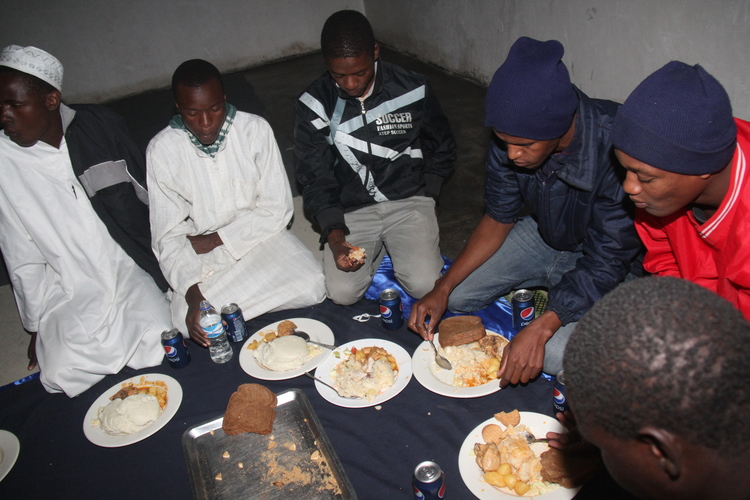
The Sunday Mail

RAMADHAAN is the fasting month for Muslims during which an estimated over one billion Muslims throughout the world fast from dawn to sunset, and pray additional prayers at night.
For those of the Muslim faith, it is a time for inner reflection, devotion to Allah, and self-control.
It is the ninth month in the Islamic calendar. The Sunday Mail Religion caught up with Zimbabwe football international, Silas Songani, who plies his trade with Danish side Sonderjyske and Mrs Hajira Makwinja, head of Fatima Zahra College as they go through the fasting season.
Silas Songani — Footballer
I was born in a family of Muslim faith and my parents are of Malawian origin. I have never thought of following any other faiths and couldn’t deviate from what my parents instilled in us even when as children we had to be forced to go to a Mosque in Dzivarasekwa close to where our family resides.
I began to understand what Ramadhaan means around the age of 15 years. I remember our father ensured we did not eat. It was tough you know especially for boys who had lots of energy playing football in the streets not to eat because during that age you would have so much appetite.
When fasting begins everyone should know because we look at the moon. Then on the first day we do 20 rakats to signify the beginning of Ramadhaan then the following days we go back into our routine of praying five times a day. It’s a difficult experience and it was always tough when I was here playing for Harare City and now also in Denmark.
During the fasting period when I go for training in the morning normally the body is still okay because you would have eaten around 3am before going for the 5am prayers.
But the difficult part of the fast is when you have your second training in the afternoon. That’s when you have to manage yourself. You know in Europe most whites don’t believe in this and the coach wants to see you doing your job.
That’s when you have to communicate to your coach because when they get to know what you are going through then they can limit and manage you in training.
If you have been a 90 minute player then the coach can limit you to 60 minutes then substitute you after. Especially in Europe where the game has so much pace it’s a struggle and worse seeing your colleagues eat.
So when I go back for pre-season training I will have to let my coach know. I have a teammate by the name Adama Guiria from Burkina Faso who is also a Muslim and we support each other. So while the first week is tough, thereafter your body kind of adjusts.
During this time you cannot take water, you are not allowed a toothbrush or toothpaste in your mouth, no swallowing saliva otherwise that will mean you have broken the fast. But if you are sick then you are not allowed to fast.
Mrs Makwinja –Head of Fatima Zahra College
I was a Christian woman married by a Muslim man. The first day fasted on the commencement of Ramadhaan around 2pm, I was so hungry I couldn’t breath. So I went back to my parents’ home and had a hearty meal.
Then I went to my home and pretended I had fasted. I felt so bad because my husband told me to rest and prepared the meal. I felt so guilty from that day I began fasting in earnest. I later confessed after years that I had cheated but he sympathised with me.
Even today though I am diabetic I fast because it’s now part of me. If I don’t fast I feel there is something amiss. I was diagnosed with sugar diabetes almost four months ago but when the doctor said I couldn’t fast I felt that was impossible. After taking my medication and then feeling much better I fasted for a week. So even as we commenced Ramadhaan its’ not difficult, I don’t feel like I have this condition. This has been part of me for decades. If I do not take food on a normal day my mind tells me I am diabetic I need to eat. But now maybe my mind is set on the fact that Allah is speaking to me so even my flesh is also submitting to it. It’s my faith which has uplifted me. So over the years when I fast I understand the struggle those who have no food go through. It teaches me to look out for others.




